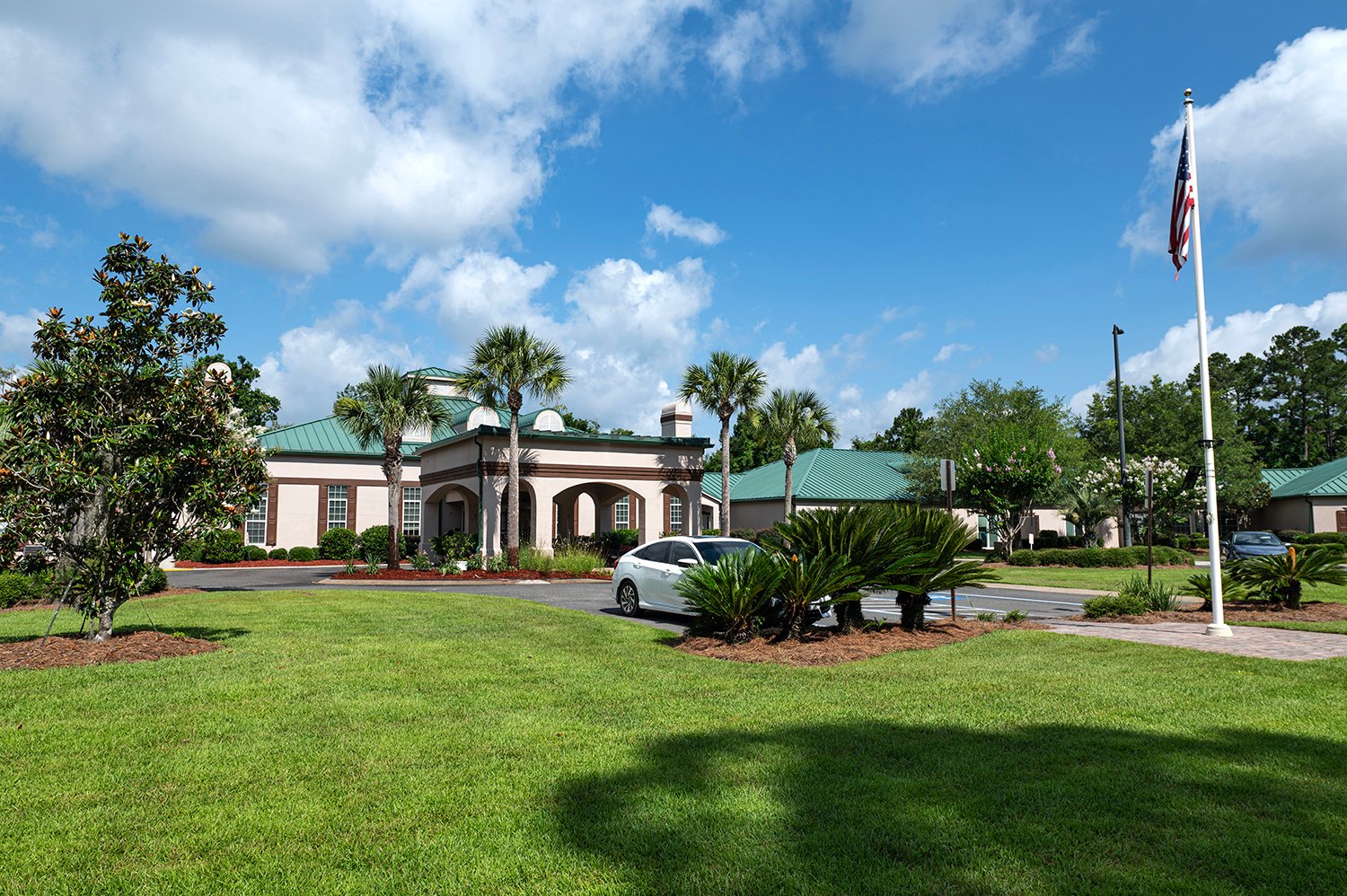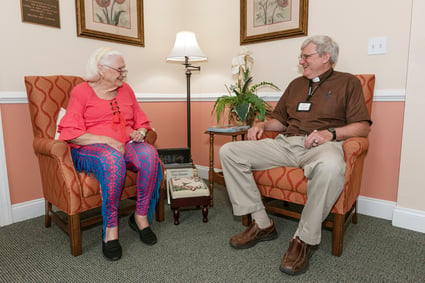Download our Free Guide:
Senior Living Explained
Learn what different types of senior living care are available and which one best fits your needs now and in the future.

.jpg)

Grief can be one of life’s most difficult challenges. We all face the loss of loved ones eventually, but the grief it brings can be especially hard for seniors and those who care for them – family, friends, and professional caregivers. Many seniors also experience a type of grief when they have to confront the possibility of moving to senior living.
.jpg?width=425&height=283&name=2023%20Richmond%20Hill%20Turkey%20Trot%20(5842).jpg) Major holidays and milestones often exacerbate feelings of loss. So, with the holidays approaching, it’s a good time to talk about how our spiritual care teams at Magnolia Manor help those in their care navigate the grieving process.
Major holidays and milestones often exacerbate feelings of loss. So, with the holidays approaching, it’s a good time to talk about how our spiritual care teams at Magnolia Manor help those in their care navigate the grieving process.
The Ten Myths of Grief brochure is a resource that our chaplains use. It’s an entry point from which chaplains can follow up. But it’s also essential information for anyone grappling with grief. The most important message?
You Are Not Alone!
 Any loss brings grief, notes Rev. Dr. John Walker, Vice President for Spiritual Care at Magnolia Manor. And everyone walks through grief differently. But you don’t have to do it in isolation, nor should you. Rev. Walker’s doctoral thesis focused on the importance of human-to-human interaction. “People want to be seen and heard,” he explains. “In ministry, we have to relate at that level.”
Any loss brings grief, notes Rev. Dr. John Walker, Vice President for Spiritual Care at Magnolia Manor. And everyone walks through grief differently. But you don’t have to do it in isolation, nor should you. Rev. Walker’s doctoral thesis focused on the importance of human-to-human interaction. “People want to be seen and heard,” he explains. “In ministry, we have to relate at that level.”
Chaplains who offer spiritual care at each Magnolia Manor campus make a point of keying in on moments when residents are facing the unexpected loss of a friend, colleague, or family member. Their job is to listen and let the person share where they’re coming from across the grief spectrum.
Spiritual care and counseling can benefit everyone, whether or not they have a strong faith. “We offer them Christ, if they want that, but we always ask first about their faith so we can know them better and build a relationship.”
We take a similar approach with families, listening to get their story, as much as they want to tell, to start building a relationship. Open communication builds trust, and that trust creates a safe space for residents and families in their time of grief.
 Rev. Walker likes to say, “People don’t care how much you know until they know how much you care.” He believes family members deserve to experience the same level of care as their loved one did as a resident. Sometimes that conversation involves a phone call, sometimes it’s one-on-one in person.
Rev. Walker likes to say, “People don’t care how much you know until they know how much you care.” He believes family members deserve to experience the same level of care as their loved one did as a resident. Sometimes that conversation involves a phone call, sometimes it’s one-on-one in person.
He has also hosted small grief groups of about 10 families using an international program called Grief Share. Participants learn that the steps of grief are cyclical. We feel better over time, but then something happens to take us back.
“We aren’t interested in triage,” he says, “we’re interested in helping families and individuals deal with grief long term. You never get over grief.”
Easing the Trauma of Transition
Many times, new residents are in denial during the first three to six months. “I’m going home,” they say. “My family took me out of my home and placed me here.” Rev. Walker says it’s important to listen to that trauma. His team asks open-ended questions – how does that make you feel? – allowing the person space to express their grief.
 “I am a big proponent of talking therapy!” he says. “Otherwise, anger could come out in negative ways, such as lashing out at family. Talking with family members helps them understand that their loved one’s anger isn’t aimed at them; it’s aimed at their circumstances.
“I am a big proponent of talking therapy!” he says. “Otherwise, anger could come out in negative ways, such as lashing out at family. Talking with family members helps them understand that their loved one’s anger isn’t aimed at them; it’s aimed at their circumstances.
Rev. Walker tells us that anticipatory grief is very real. We all want to age at home, but that’s not always possible. Anticipatory grief keeps people from living their best lives by fueling hesitancy to move. Ideally, seniors should make the transition early enough to become an integral part of their new community rather than feeling like they were dropped into a strange place with a whole new and daunting learning curve. Discussing senior living alternatives with your loved one ahead of time can help them come to that decision on their own.
“No one comes here to die; we’re about living life. Magnolia Manor ministry helps share what that looks like.” Education is huge because understanding what our communities have to offer makes it easier to adjust to the transition. New residents still feel separation anxiety and grief, but they understand they are going from life to life.
 Celebrating Every Life
Celebrating Every Life
Each January, Magnolia Manor communities hold an annual celebration of life of those who passed away during the past year. Families are encouraged to join in the fellowship, and the gatherings are usually well-attended. There’s a memorial service to mark the passing, and Rev. Walker reminds everyone, “You have grieved, we want to express our love and care.”
That open communication and the art of compassionate listening help residents, families, and staff understand that feelings of loss and the grieving process may be unique to each person, but they needn’t be endured alone.
Learn More About Magnolia Manor
Learn about quality senior living at an affordable cost by visting any of our 8 campuses in south Georgia. Schedule a tour online or give us a call any time at 1-855-540-LIFE (5433).
Learn what different types of senior living care are available and which one best fits your needs now and in the future.
